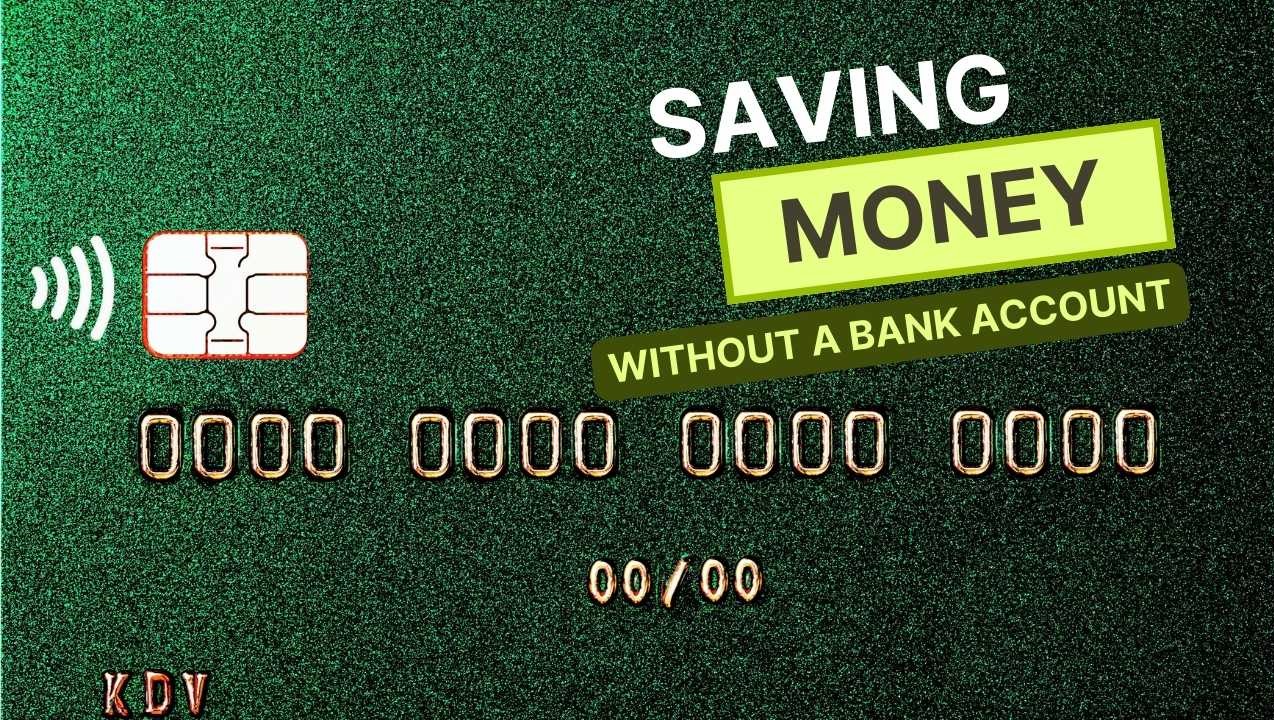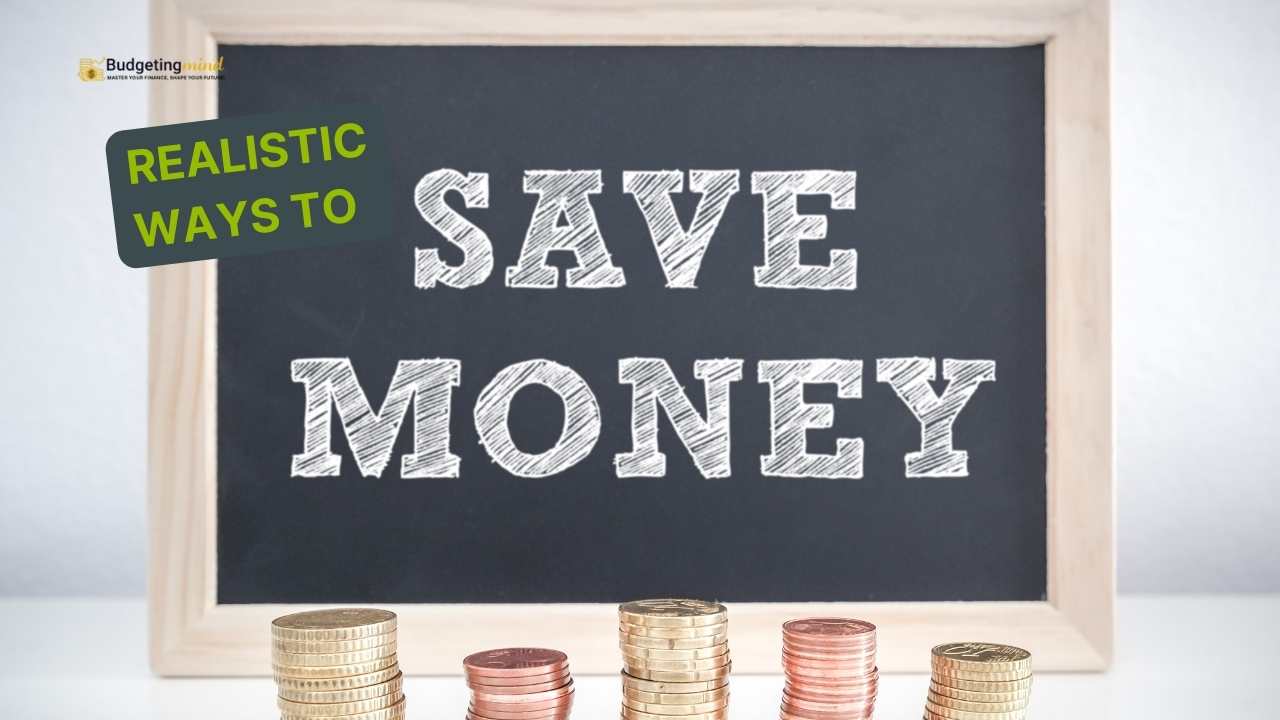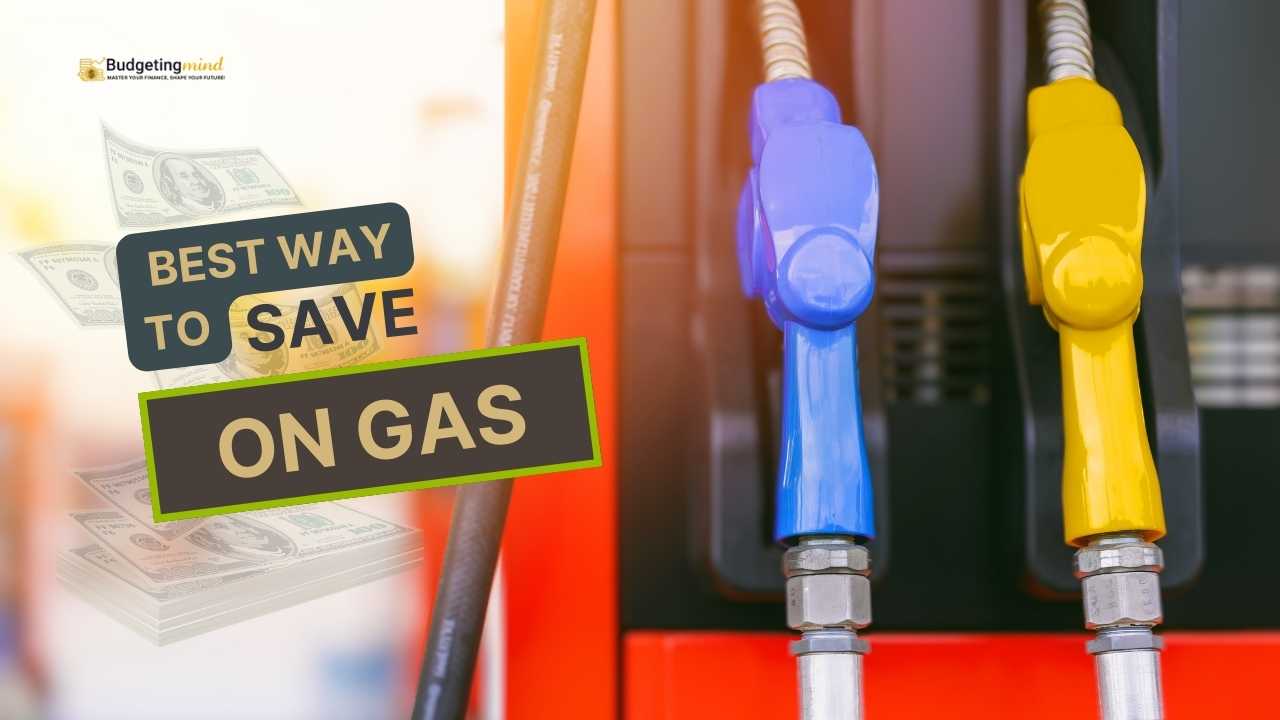Saving money is super important to have a good financial situation! It helps you have a safety net, reach your money goals, and be financially free in the long run.
While many people use traditional banks to save money, not everyone can do that. 🏦 According to a survey by the FDIC, about 7.1 million households in the US tend to save money without a bank account.
There are many reasons why someone prefers Saving money without a bank account like personal choice or not having a credit history.
But don’t worry, you can still save money fast without a bank account! 💸 In fact, there are other ways to save money without a bank account that gives you more control over your finances.
In some countries, mobile money accounts are becoming more popular, and they’re a great option for people without bank accounts to save and send money. 📱
Here we shall talk about the best ways to save money without a bank account. We’ll cover saving tips for people without bank accounts and strategies to manage your money better. These alternatives can help you reach your savings goals! 🌟
How can I save money without a bank account? Finding alternative financial solutions, such as prepaid cards or mobile wallets, can help you save money without a bank account. Opt for cash transactions to avoid unnecessary fees. Community credit unions and check-cashing services also provide savings options. Consider digital financial services for secure money management.
- Saving Money Without A Bank Account: Brief Overview
- How To Save Money Without A Savings Account?
- Creating A Joint Budget And Tracking Expenses Together: Create A Budget For A Joint Account
- Safe Alternatives To Savings Accounts To Make More Money
- Overview Of Saving Money Without A Bank Account
- Introduction To Prepaid Debit Cards And Mobile Wallets
- Benefits Of Using Prepaid Debit Cards For Saving Money
- How To Choose The Right Prepaid Debit Card Or Mobile Wallet For Your Needs?
- Understanding Fees Associated With Prepaid Debit Cards And Mobile Wallets
- Tips For Managing And Maximizing Your Savings With Prepaid Debit Cards
- Budgeting And Tracking Expenses Using Prepaid Debit Cards
- Setting Financial Goals And Saving Strategies Without A Traditional Bank Account
- Safety And Security Measures When Using Prepaid Debit Cards Or Mobile Wallets
- FAQ About The Saving Money Without A Bank Account
- Final Thought 💭
Saving Money Without A Bank Account: Brief Overview
While it’s nice to have a bank account for easy access to money and services, you don’t need one to save money! People who don’t have bank accounts can still find ways to manage their finances and save for the future.
You can be in control of your money without a bank by using other financial options like digital banking and traditional savings accounts.
By learning how to handle money without a bank, you can come up with fun ways to budget, keep track of spending, and reach your financial goals without relying on a bank.
Unbanked Saving Techniques
When you can’t use a regular bank, there are other ways to save money! One popular choice for people without a bank account is a prepaid debit card.
These cards can be filled with money and used for shopping, paying bills, and online shopping.
Unbanked saving techniques make it easy and safe to manage your money without a traditional bank account.
Many prepaid debit cards offer features like direct deposit, interest rates on savings, and annual percentage yield (APY), making them a good option for saving.
Another way to save money without a bank account is by using post office services. Some post offices offer savings accounts, money orders, and checking services, which are a safe alternative to regular banks.
Money orders are especially useful for financial transactions without a bank account. They are accepted by many stores and can be bought at post offices, banks, and other authorized places, making them a secure way to send money and handle expenses. 💰📬🛒


Savings Without Banking Services
Savings without having a bank can be done by using different money services. Digital banking is a popular option nowadays, giving people without a bank account access to financial tools through mobile apps or online platforms.
These apps let you transfer funds, pay bills, and have savings accounts, helping you save and manage money without a regular bank account.
Peer lending platforms also let unbanked individuals save money and invest. These platforms connect borrowers and lenders directly, skipping traditional middlemen.
People having Savings without banking services can join peer lending by lending money to others or investing in loans, earning interest on their investments.
Peer lending platforms are an alternative to banks, offering higher returns and more financial independence. 📱💰🤝
Financial Autonomy Without Banks
Achieving financial independence without using banks involves saving money and building financial security in different ways.
People with Financial autonomy without banks can save for unexpected expenses or emergencies by putting aside some money from their income regularly.
This emergency fund acts as a safety net and helps with financial stability without needing a traditional savings account.
Investing in money market accounts can also be profitable for those without bank accounts. These accounts, offered by financial institutions, give higher interest rates than regular savings accounts.
They are low-risk investments, making them a good choice for people without bank accounts who want to make the most of their savings.
Using alternatives to direct deposit also helps with financial independence. People without bank accounts can securely receive payments through different options like prepaid debit cards or mobile banking apps.
These alternatives remove the need for a traditional bank account while still offering the convenience and security of direct deposit services.
Money Management Without Banks
Effective money management is really important for people who don’t use a bank to save money and reach their financial goals. By following some tips, they can carry out Money management without banks without depending on regular banks. Here are some key suggestions for managing money without banks:
- Making a Budget: People without a bank account need to create a budget to keep track of how much money they make, spend, and save. By understanding their financial situation well, they can put money towards savings and focus on their financial goals.
- Keeping Track of Expenses: It’s crucial to monitor expenses closely for good money management. People without a bank account can use mobile apps or online tools to organize and watch their spending, finding areas where they can cut back and save money.
- Setting Financial Goals: Having clear financial goals helps people without a bank account stay motivated and concentrate on saving money. By setting measurable goals, like saving a specific amount each month or paying off debts, they can work towards financial freedom without using traditional banking services.
- Using Microsavings Accounts: Looking into micro-savings accounts, which are made for saving small amounts, can help people without a bank account save regularly. These accounts usually have low minimum balances and might offer better interest rates than regular savings accounts, giving them another option to build up savings.
- Considering Cryptocurrency: People without a bank account can think about investing in cryptocurrency as a different way to save money. With the popularity of digital currencies, investing in cryptocurrencies like Bitcoin or Ethereum can offer chances for growth and diversification of savings.

How To Save Money Without A Savings Account?
When you can’t use a savings account, there are still ways to save money! By trying out Saving money without a bank account or different money services and using smart money skills, people without savings accounts can make money and reach financial goals.
In the next parts, we will look at specific plans and tips to help people save money without using normal banks. 💰💡📈
Creating A Joint Budget And Tracking Expenses Together: Create A Budget For A Joint Account
Making a budget together that fits both of your money goals is important. Keep updating and changing the budget to make sure it still works for you.
Tracking what you both spend helps you talk openly about money. 💬 Splitting money for shared bills and personal spending, such as an allowance for each of you, helps you manage your finances. 💰 Using tools to budget makes it easier to keep track of your expenses. 📊
Saving Money At Home Instead Of Bank
Saving money at home can be a good idea if you don’t have a bank account. It’s important to keep your money safe, so use a locked box or safe.
You can also use prepaid debit cards or mobile payment apps for shopping and paying bills. 📱 Setting a budget and tracking expenses can help you save more.
Look for check-cashing stores or money orders to avoid high fees. Consider investing in gold or silver to protect and grow your savings. 💰


Store Money Online Without A Bank Account?
Storing money online without a bank account is possible through different digital financial services. Online banking and mobile apps offer convenient solutions for people without traditional bank accounts to store and manage their money digitally. Here are some ways to store money online without a bank account:
You can use online payment platforms like PayPal to store money without a bank account. PayPal lets you create digital wallets to send, receive, and store money online.
Prepaid debit cards can also help you store money online without a traditional bank account. These cards can easily be loaded with funds and used for online purchases, bill payments, and other financial transactions.
Mobile payment apps like Venmo or Cash App are another option to store money digitally without a bank account. These apps provide digital wallets that can be linked to debit cards or bank accounts, allowing you to store money digitally and make payments conveniently.
Cryptocurrency wallets offer a different way to store money online without a bank account. Digital wallets specifically for cryptocurrencies, such as Bitcoin or Ethereum, let you store, send, and receive digital currencies without traditional banking services. Research different cryptocurrency wallets to find one that meets your needs and provides the desired level of security.
Safe Alternatives To Savings Accounts To Make More Money

There are other ways to grow your savings besides using a regular savings account. You can try high-interest savings accounts, money market accounts, or certificates of deposit for better returns.
Peer-to-peer lending and investing in stocks, bonds, or mutual funds can help your money grow. You can also consider alternative investments like real estate, cryptocurrency, or precious metals for more options and potentially higher returns compared to traditional banking services.
Overview Of Saving Money Without A Bank Account
To save money without a bank account means finding different ways to manage your money without using a traditional bank.
Instead of relying on a bank account, there are other financial services available that can help you save, grow, and handle your money effectively.
In this section, we will give you an overview of saving money in an alternative way without a bank account by looking at different options and showing you how you can take control of your finances without banks through smart money management and alternative financial products.

Introduction To Prepaid Debit Cards And Mobile Wallets
Prepaid debit cards and mobile wallets are like bank accounts but without needing a bank. These money tools give unbanked people the same benefits as a regular bank, like convenience, safety, and control over their finances.
With prepaid debit cards and mobile wallets, people can save, invest, and handle money without a traditional bank.
This section will look at prepaid debit cards and mobile wallets, what they offer, their advantages, and how they can help unbanked individuals manage their money and reach their financial goals.

Benefits Of Using Prepaid Debit Cards For Saving Money
Prepaid debit cards are good for people who don’t have a bank account. These cards have money on them and are a safe and easy way to manage your money.
You can easily put money on the card, take it out, and keep track of your funds. With these cards, you can buy things online or in person, pay bills, and get money from ATMs without needing a bank account.
Prepaid cards help you not spend too much money because you can only spend what’s on the card.
They also give you the option to set limits on how much you can spend and keep track of your expenses.
Some cards even let you earn interest on your savings with features like direct deposit or annual percentage yield (APY).
How To Choose The Right Prepaid Debit Card Or Mobile Wallet For Your Needs?
To pick the best-prepaid debit card or mobile wallet, you need to think about a few important things.
First, look at the fees, ATM access, direct deposit options, and mobile app features of the prepaid debit card.
For mobile wallets, check out the digital payment choices, bill payment features, and expense tracking that fit your money management style.
Compare different options based on how easily you can link accounts, make digital payments, and view your transaction history.
Personalize your choice by looking for features like round-up savings or automatic transfers to help you reach your savings goals.
By considering these factors, you can find the right option for your financial needs.
Understanding Fees Associated With Prepaid Debit Cards And Mobile Wallets
Understanding the costs linked to prepaid debit cards and mobile wallets is important for people without a bank account who want to make smart money choices. While these different financial services offer convenience and flexibility, some fees come with using them. Here are some common fees to know about when using prepaid debit cards and mobile wallets:
- Monthly fees may be charged by prepaid debit card companies or mobile wallet providers for managing your account and accessing certain services.
- Overdraft fees might be applied if you spend more money with a prepaid debit card than you have in your account, resulting in a negative balance.
- Being clear and honest about fees for prepaid debit cards and mobile wallets is crucial. It’s important to understand and compare the fee structures of different prepaid debit card options to find the one with the most clear and favorable fees for your financial needs.
- By understanding and comparing fees, people without a bank account can make wise choices and pick prepaid debit cards or mobile wallets that give them the best value and match their financial goals.

Tips For Managing And Maximizing Your Savings With Prepaid Debit Cards
Managing and getting the most out of your savings with prepaid debit cards means using smart money strategies and making the most of the features they offer.
To make your savings grow with prepaid debit cards, it’s important to use budget tools, track your expenses, and take advantage of savings account options from providers.
You can also boost your savings by using round-up savings, cashback rewards, and competitive interest rates that many prepaid cards offer.
Setting specific money goals and using your prepaid card to keep track of how you’re doing can help you stay focused and on target.
By using prepaid cards to budget, track expenses, and save for the future, you can see where you can cut back, monitor your spending, and save money more effectively.
Prepaid debit cards offer different ways to save money without a regular bank account, providing alternative ways to manage money, make payments, and save up.
To make the most of your savings, keep up to date on the latest features and services that prepaid card providers offer.
Budgeting And Tracking Expenses Using Prepaid Debit Cards
Budgeting and keeping track of expenses are important for managing your money well, even if you don’t have a regular bank account.
Using prepaid debit cards with tools to help you budget and track your purchases can help you manage your finances effectively.
Prepaid debit cards often have apps or websites that let you organize your spending, set limits on how much you can spend, and see all your transactions.
This can help you understand your money habits better and make smart choices about your finances.
With a prepaid card, you can also see a history of your transactions, which can help you see where you might be spending too much and adjust your budget.
You can even set money aside for things like groceries, transportation, or fun activities, so you can stick to your budget and reach your financial goals.
By using prepaid debit cards, you can avoid overspending, keep track of your expenses, and make better choices about your money, which can help you manage your money well and save more.

Setting Financial Goals And Saving Strategies Without A Traditional Bank Account
Setting financial goals and saving strategies without a traditional bank account is important for people who don’t have access to regular banking services.
First, decide on what you want to achieve financially, make a plan to save money, and think about your short-term and long-term goals like dealing with unexpected expenses or saving for when you stop working.
Look into other money services like prepaid debit cards, money market accounts, and peer lending platforms that can help you reach your goals.
Use prepaid debit cards to start an emergency fund and save for the future, so you have money set aside for unexpected costs.
Divide your goals into smaller steps that you can reach and use features like savings accounts on prepaid cards to track your progress towards being financially independent.
By setting goals, following your plan, and using different money services, people without a bank account can take charge of their financial future and feel more secure about their finances.
Safety And Security Measures When Using Prepaid Debit Cards Or Mobile Wallets
Make sure you keep your money and personal information safe when using prepaid debit cards or mobile wallets.
Keep your card details safe, use strong passwords, and report any suspicious activity right away.
Stay alert for possible dangers, check your transactions regularly, and report any fraudulent activity.
If you lose your card or it gets stolen, tell the company right away so they can act quickly to protect your money and personal information.


FAQ About The Saving Money Without A Bank Account
Where Can I Hold Money Without A Bank Account?
Unbanked individuals can manage money without a bank account using alternative financial services. Options include prepaid debit cards for secure fund management, mobile wallets like PayPal for digital transactions, and post office services for savings and check cashing. Research available services at local post offices for more information.
Where Do You Save Money If Not In The Bank?
If you lack a bank account, there are alternatives for saving money. You can keep cash in a home safe for direct control and security. Money market accounts offer higher interest rates than regular savings accounts but may have balance requirements. Peer lending platforms allow direct borrowing and lending, offering unbanked individuals an option to earn interest and grow their savings.
How Do I Get Money If I Don’t Have A Bank Account?
If you lack a bank account but need access to money, consider alternative financial services like check cashing, money orders, and prepaid debit cards. Compare rates and choose reputable providers to avoid excessive fees. Money orders are secure and widely accepted, while prepaid debit cards offer convenience for deposits, withdrawals, and purchases without a traditional bank account.
Can I Get A Savings Account Without A Checking Account?
Yes, you can open a savings account even if you don’t have a checking account. Some places might ask you to have a checking account first, but others offer savings accounts on their own. Look into different places like banks and credit unions to find ones that let you open a savings account without needing a checking account. Make sure to check what each place needs and what features they offer so you can pick the best savings account for you and your money goals.
Final Thought 💭
So, it can be said that you can save money without a bank account. Saving money without a bank account can give you more control over your finances.
You can manage your money at home or use online options like prepaid debit cards and mobile wallets. It’s important to know about any fees and to budget wisely to save more.
Setting goals and staying secure can help you confidently navigate your finances without a traditional bank account.





Leave a Reply